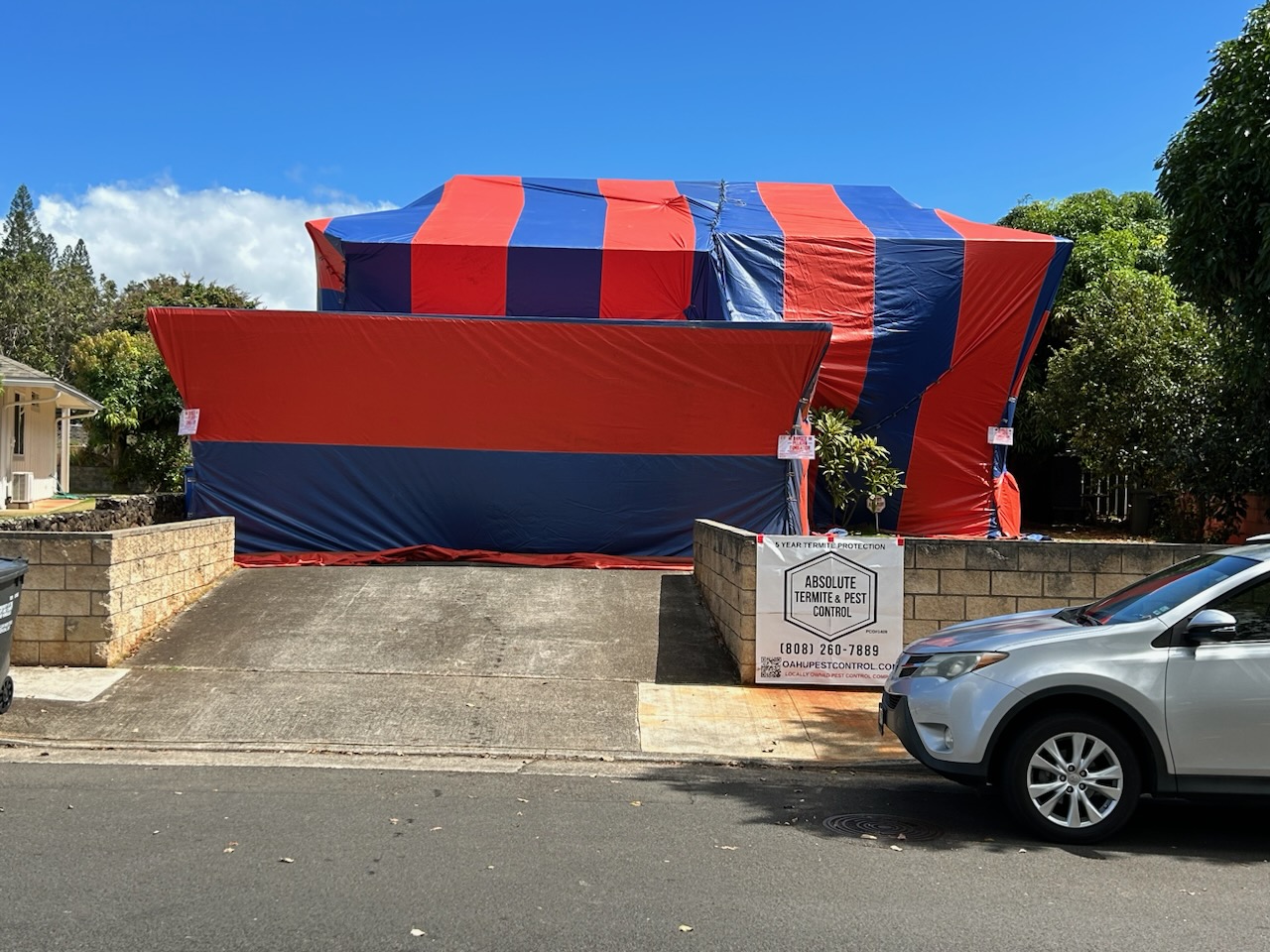Understanding the Carpenter Ant Problem in Hawaii's Homes and the Importance of Effective Pest Control
- Absolute Pest Control Hawaii PCO#1409
- 1 hour ago
- 4 min read
Carpenter ants can be a significant issue in homes across Hawaii, causing extensive damage if not addressed early. These wood-destroying pests are more than just a nuisance; they can compromise your home's structural integrity. By understanding their behavior and the vital role of pest control, you can protect your residence from potential invasions and safeguard your investment.

What Are Carpenter Ants?
Carpenter ants (Camponotus spp.) are large, typically black or bicolored ants recognized for their damaging tunneling in wood. Unlike termites, carpenter ants do not eat wood; they hollow it out to create nests. Their presence often goes unnoticed until visible damage appears.
Hawaii's warm climate is ideal for carpenter ants, with humidity and abundant vegetation providing perfect nesting conditions. For instance, research shows that carpenter ant populations can increase by 60% during peak summer months, highlighting the need for vigilance in monitoring their presence.
Identifying Carpenter Ant Infestations
Spotting a carpenter ant problem early is crucial for effective pest management. Here are key signs of infestation:
Seeing the Ants: Carpenter ants often forage for food, particularly at night. You may spot large black or red-black ants traveling in a line.
Wood Shavings: Finding small piles of wood shavings (frass) beneath wooden structures signals ant activity nesting in the wood.
Rustling Noises: Listen for faint rustling sounds from walls or ceilings, especially during quiet hours, indicating activity within your home.
Small Entry Holes: Search for tiny holes in wood surfaces where ants are entering or exiting their nests.
If you notice any of these signs, act immediately. A minor problem can grow into a full-blown infestation in a matter of weeks.
The Role of Moisture in Attracting Carpenter Ants
Moisture significantly attracts carpenter ants. They prefer nesting in damp or decayed wood, so areas damaged by water are particularly prone to infestations.
As a Hawaiian homeowner, it is crucial to regularly check your property for leaks or areas of poor drainage. For instance, more than 50% of homeowners who experienced carpenter ant problems reported that moisture issues were the primary catalyst for the infestation. Ensuring your home is dry and well-ventilated can dramatically reduce your risk of an invasion.
The Importance of Pest Control
Effective pest control is essential not only for eliminating current infestations but also for long-term prevention. Here are some key reasons why pest control is vital in managing carpenter ants:
Early Detection and Treatment
Professional pest control services possess the expertise to identify and treat carpenter ant invasions early. They provide thorough inspections and assess the extent of the problem, which can be challenging for untrained individuals.
Specialized Treatments
Pest control experts use specialized techniques and products that are often more effective than store-bought solutions. For example, they can target nests directly and utilize baits that can eliminate entire colonies while minimizing risks to your family and pets.
Education and Prevention
In addition to treatment, pest control companies often supply educational resources. This can help homeowners learn how to prevent future infestations by maintaining properties, eliminating potential nesting spots, and fixing moisture problems.
DIY Methods for Carpenter Ant Control
If you prefer to address the issue yourself, here are a few DIY methods you might consider:
Boric Acid Baits: Set out bait containing boric acid in areas where you’ve observed carpenter ants. The ants will carry this bait back to their nest, eventually helping to eliminate the entire colony.
Diatomaceous Earth: Dust food-grade diatomaceous earth around entry points. This fine powder damages the ants' exoskeleton, leading to dehydration over time.
Seal Entry Points: Caulk gaps or cracks in your home’s exterior, especially around windows, doors, and plumbing, to block ants from entering.
Regular Inspections: Conduct routine checks around your property for signs of ant activity to catch infestations early.
While these methods can be useful, combining them with professional pest control services will often yield the best results.
Long-term Prevention Strategies
To keep your home free of carpenter ants in the long run, consider implementing the following strategies:
Maintain Landscaping: Regularly trim plants and shrubs to keep them away from your home's foundation, preventing ants from creating a direct path to your house.
Wood Care: Maintain any wood structures, such as decks or fences, ensuring they are treated to resist moisture.
Monitor Humidity Levels: Use dehumidifiers in humid areas like basements to keep moisture levels low, deterring ants.
Regular Professional Inspections: Plan periodic inspections with pest control experts to identify potential problems before they expand.
Final Thoughts
Carpenter ant problems in Hawaii's homes can lead to severe structural damage if left unchecked. By recognizing the signs of an infestation, understanding effective pest control methods, and taking preventive measures, you can protect your home from these destructive pests. While DIY solutions may offer some short-term relief, working with pest control professionals is typically the best way to secure your home against carpenter ants over time. Staying proactive and vigilant will help you maintain a safe and healthy living environment for you and your family.











Comments